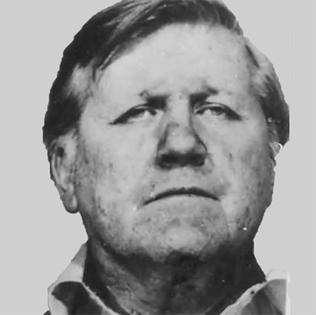DECEMBER 8, 2019 – Friday evening my wife and I binge-watched on Netflix, Martin Scorsese’s masterwork, The Irishman. I say “binge-watched,” because though the film is not a series, it runs for three-and-a-half-hours—the equivalent of several back-to-back episodes of a series.
The title role, played by Robert De Niro, was the nickname of Frank Sheeran, an Irish-American hitman. After fighting in Patton’s army in World War II, Frank came home a killer (411 days in combat and a participant in atrocities) and was hired as a truck driver. He got mixed up in organized crime and became a protégé of crime boss Russell Bufalino (played brilliantly by Joe Pesci). Bufalino introduced Frank to Jimmy Hoffa (depicted by Al Pacino—who else?!), infamous, powerful president of the Teamsters Union. Frank and Jimmy became close friends After “going to college” (i.e. prison), Hoffa tried to regain his power but in the process, made enemies. On his deathbed in 2003, Sheeran confessed to Hoffa’s unsolved murder in 1975.
In the meantime, Frank, as well as Bufalino, also “went to college,” for fraud and racketeering, though never murder.
The screenplay follows closely the book by Charles Brandt, entitled I Paint Houses, a non-fiction narrative of Sheeran’s career and claimed murder of Hoffa. According to Sheeran, upon meeting him, Hoffa said, “I understand you paint house?”—an allusion to murdering targets designated by crime bosses, and “painting the floorboards” with blood. Apparently, controversy remains as to whether Frank was telling the truth. The jury, as it were, is still officially “out.”
Irrespective of the accuracy of Frank’s story as told to Brandt, many other aspects of the film remind the viewer of many verifiable events that ruled the headlines back in the day. JFK’s run for the presidency and boot-legging Joe Kennedy’s connections with the Mafia; Bobby Kennedy’s appointment as Attorney General and, ironically, his central focus on prosecuting organized crime figures; the failed Bay of Pigs operation (for which Frank was a driver in the haul of weapons to Miami) and Howard Hunt’s involvement and later connection to Watergate; the assassination of JFK and the end of Bobby’s anti-crime campaign; rampant fraud, racketeering, and power plays among union thugs; Nixon’s commutation of Hoffa’s prison; John Dean’s ship-sinking testimony before the Senate Watergate Committee.
By weaving into the foreground of the story, background politics, crime and violence, the story reminds the viewer of the comparative sanity (or alternate sanity?) of our own times.
I found the film to be superb. The casting, the acting, the directing, the attention to set details—all were executed magnificently. De Niro, Pesci, and Pacino turn in Academy Award quality performances, and Scorsese proves again that he is a director of mighty talent. If The Irishman is long, it has to be to accommodate the complete breadth of story and the full measure of skill among actors, director, set designers, costume designers, and all the many others who contributed to a work of this magnitude.
Watch it! (That’s a recommendation, not a threat.)
(Remember to subscribe to this blog and receive notifications of new posts by email.)
© 2019 Eric Nilsson
